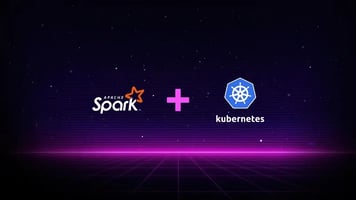What is NLP and common use cases
Natural Language Processing (NLP) is a branch of Machine Learning that gives machines the ability to understand human language. Given some text, computers not only derive meaning from what’s said or written, they can also understand contextual information and a person’s sentiment in the same way humans do.
Our decade-long experience in major European Big data projects taught us the importance of Data Management architectures at every point of the data operations pipeline. We promote a new approach to analytics where every team is always equipped with vast data availability
NLP can help your business solve many tasks and the fields of application just seem to increase on a daily basis. It is used to understand the meaning of human language by analyzing different aspects like syntax and semantics. Then, machine learning transforms this linguistic knowledge into rule-based algorithms that can solve desired problems.
The most influential companies in the world leverage NLP daily. For example, Google categorizes emails thanks to an NLP: the words in subject lines are associated with predetermined tags and machines automatically learn which category to assign emails.
How Natural Language Processing works
Natural language processing environment includes many different techniques and tools for interpreting human language.
Basic processes include tokenization of entire sentences, lemmatization, language detection and identification of semantic relationships. To do so, NLP breaks down language into smaller pieces and tries to understand relationships and context meanings.
High level NLP capabilities can be:
- Topic discovery and modeling.
- Contextual extraction
- Sentiment analysis
- Speech-to-text and text-to-speech conversion
- Document summarization
- Machine translation
Use cases
NLP in Healthcare:
NLP can be adopted in the healthcare industry for two main reasons: medical treatments and fill the gaps in the care services. NLP models can be trained to recognize diseases based on a patient’s EHR documents and common diseases. Moreover it can be used to understand surveys and feedback received by patients after some treatments.
NLP can be used to interpret the description of clinical trials and specific notes written by doctors. Medical records would be used as training data in order to be able to recognize medical terminology. This not only enables physicians to save time and focus on providing patients with the essential care they need, it also ensures that clinical documentation is accurate and kept up to date.
NLP in Finance:
Best use cases in Finance involve credit scoring, fraud detection and customer support management.
NLP can assist companies in credit scoring by gathering and extracting relevant data from customers documents such as loan documentation or general contracts to compute the relevant score and customer segmentation. Moreover, NLP can be combined with ML to detect fraud and wrong information from unstructured financial documents.
Customer feedback is valuable data for finance companies. NLP helps identify words or phrases commonly used and can help to assess which services your customers enjoy or not, and so the one to additionally boost.
NLP in Telco, Utility and Retail industry:
These industries exploit NLP to guide and assist customers, while ensuring brand management.
Many retail shops combine NLP and virtual assistants in their stores to guide customers in their shopping journey. In-store bots act as shopping assistants and suggest products to customers according to sales, promotions and customers’ preferences.
Additionally, market departments can combine NLP capabilities and data products to analyze consumer sentiments, detect market trends, and optimize their strategies to increase brand awareness.
NLP in Marketing:
NLP software helps by analyzing social posts, reviews, and user-generated content related to your or similar organizations. In this way, companies can understand the products that are being mentioned more frequently.
Moreover, NLP is strictly connected with chatbots. This relationship ensures that customers can receive immediate attention so sales experts can step in only when the sales effort is most likely to be successful.
NLP in Ecommerce:
Other use cases involve the adoption of NLP in Ecommerce websites.
In particular, to rank vendors according to semantic categories present in the reviews.
Indeed, many e-commerce websites rely on NLP-powered semantic search engines to leverage long-tail search strings (like details in review), understand the shopper’s intent, and thus improve the visibility of numerous products for different users.
Conclusion
Natural Language Processing is still evolving and is being adopted by more and more companies. It’s a core piece every company should use in its customer service departments or in combination with other data solutions to leverage the best possible competitive advantage.
.webp?width=582&height=486&name=img-02%20(1).webp)
.png?height=200&name=Untitled%20presentation%20(2).png)
.webp?height=200&name=img-01%20(2).webp)







